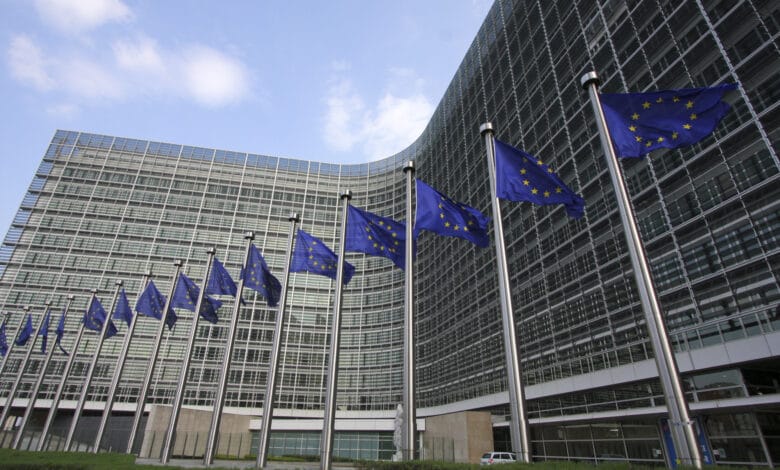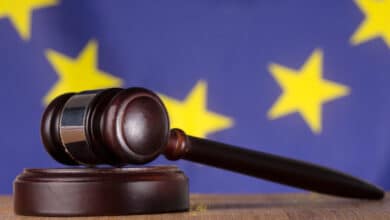
With the Data Act, the EU wants to continue on its path toward a uniform data law. Many sides have praised the sensible but also extremely ambitious project. In addition to positive voices, there are also skeptical opinions.
Praise from science and politics
It is not only the IT industry that is highly pleased about the fact that the Data Act attempts to establish a “data policy standard” within the EU. Opinions from politics and science also agree. But as is often the case, the devil is in the details. For example, some of the corners and ends of the planned law still need to be tweaked to ensure that it does not fail to achieve its desired effect. Last Wednesday, the data law was presented to the public. Matthias Kettemann of the Leibniz Institute for Media Research sees this as the execution of an important step toward ensuring that data provisions will be more
“more democratic, open, fair, people-centered and competition-friendly”
will become. In his remarks, made to the “Science Media Center,” it is clear what value data holds in our modern digitized world. Accordingly, it is of great importance that in the field of data policy, the focus is on people. With a view to tech companies such as Google and Meta, he also states that it is of great importance to prevent monopolies. Thus, he states that it is imperative that data may be
“flow back along the value and supply chain and not be monopolized.”
The most valuable raw material of our time
When Facebook went public almost ten years ago now, the question on everyone’s mind was what the value of the tech company was. After all, few stockbrokers and business experts knew of a comparable social network. So they used a trick. For orientation, they simply took the number of users that the network founded by Mark Zuckerberg and his fellow students counted. Each individual user was then assigned a value of 100 US dollars. This was the first time that laypeople realized the value of data in today’s world. After all, they serve as the basis for one of the most important marketing tools – personalized advertising.
Accordingly, it is obligatory to develop a tailor-made law for the specifics of data traffic. The idea of the “Data Act” was born. Of course, it is primarily lawyers and IT scientists who see the importance of such a regulation. Here’s what Björn Steinrötter, an expert in IT law who teaches at the University of Potsdam, has to say about the Data Act:
“It is an outstandingly important legislative project that is preparing to become the centerpiece of an emerging EU data economy law”
Here, the legal scholar stands behind the opinion of the EU Commission when it comes to the issue of ownership. Thus, the Data Act in its current version does not grant ownership rights to user data. Instead, it is a matter of access rights, so to speak. IT expert Indra Spiecker considers this to be a view with rose-colored glasses. After all, she considers some of the contents of the Data Act to be
“… naive, when it comes to the use of data.”
Furthermore, she believes that there is not enough focus on the people whose data is ultimately passed on. In her opinion, the Data Act contributes
“… does not sufficiently take into account the values and interests behind it.”
On par with the GDPR
In order for the Data Act to have its desired effect, media law expert Tobias Keber believes that care must be taken to ensure that the law is on a par with the General Data Protection Regulation (GDPR). In doing so, he warns against blanketly prohibiting tech corporations such as Google and Meta from transferring data to the United States. After all, this could lead to collisions with the provisions of global trade law. Federal Justice Minister Marco Buschmann (FDP) also issued a positive statement on the Data Act. In doing so, he clarified
“Even on the issue of data access, the law of the strongest must not apply.”
This means that every user is free to dispose of his data. This may in no way
“go to the detriment of the fundamental right to informational self-determination.”
With this, he certainly wants to emphasize that one not only has a right to deny companies access to one’s own data. On top of that, you have the right to freely share your data if you want to. Buschmann also briefly discussed the disclosure of algorithms. Here, corporations have a right to secrecy. This, he said, is the only way to achieve the grand goal of a
“data policy gold standard”
Data Act must not be to the EU’s disadvantage
Concerned voices came from the IT association Bitkom. The latter made it clear that it is essential to ensure that the Data Act does not turn out disadvantageous for the EU. In particular, they said, the focus should be on making sure
“that it brings the European data economy on a par with the world’s leading digital locations.”
In particular, the rights of companies also play a major role. After all, if the Data Act is formulated too strictly, this could put a real damper on the EU’s attractiveness as a location for server farms. Cloud services in particular would then probably look for other locations. Furthermore, care must be taken not to formulate the law in such a way that it interferes too much with the contractual freedom of companies. In the long term, this could prove to be a real damper on innovation.
Legal certainty is the key
When drafting, it is important not only to keep the interests of EU citizens in mind. Since it is primarily companies that could potentially suffer disadvantages as a result of the Data Act, it is important to act fairly here. All of this stands and falls with legal certainty. Here it is important to create a uniform standard throughout the EU. This is the view of the Eco Association of the Internet Industry. Furthermore, it must not be forgotten that it is precisely data collections that move us forward in the area of digitization. They are at the heart of developments around the topic of artificial intelligence. Karl-Heinz Streibich, for his part an expert in the field of AI and co-chair of the Learning Systems Platform, once again clarifies that.
“from the data of our digitized world, future-proof products and services, such as for autonomous driving or cancer screening”
will emerge. In order not to slow down the further development of artificial intelligence, but to drive it forward, he said, it is important to also allow data transfers.
Data security not only desired on the Internet
Streibich was obviously responding to criticism from the Automobile Club of Germany (AvD). The latter, in fact, had been outspoken about the data protection of motorists prior to the public announcement of the EU Commission. It is extremely important
“to protect and strengthen the rights of motorists to their vehicle data”
This opinion can be understood quite clearly. After all, especially current cars increasingly rely on the latest computer technology. Here, partly gigantic data sets are collected. But as with surfing the Internet, it is also driving on the road the interest of each person to know what happens to the data sets. At least as important, of course, is what data is collected in the first place when you’re on the road in your car.
Weighing many interests needed
.
Working out the Data Act is likely to prove a real gauntlet. After all, weighing up all the interests is extremely difficult. This is also confirmed by Vice President of the EU Commission Margrethe Vestager. The politician, who specializes in digitization, describes the drafting of the legal text as a real “tightrope act.” We are already looking forward to the final result.




No replies yet
Neue Antworten laden...
Neues Mitglied
Beteilige dich an der Diskussion in der Basic Tutorials Community →